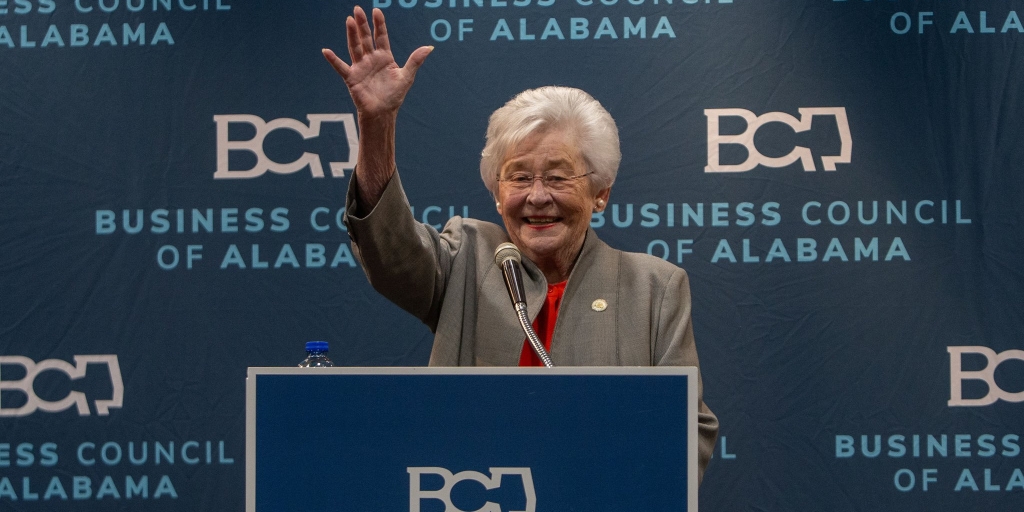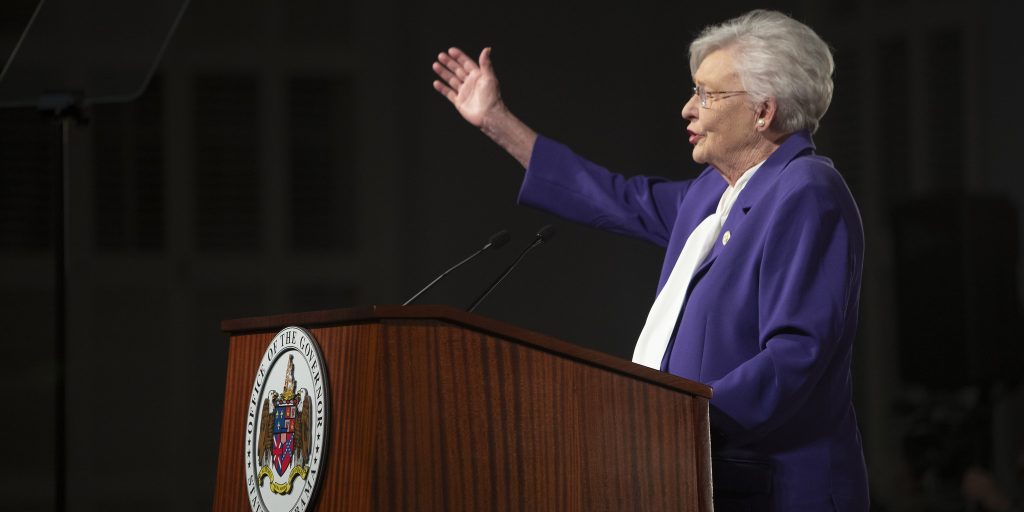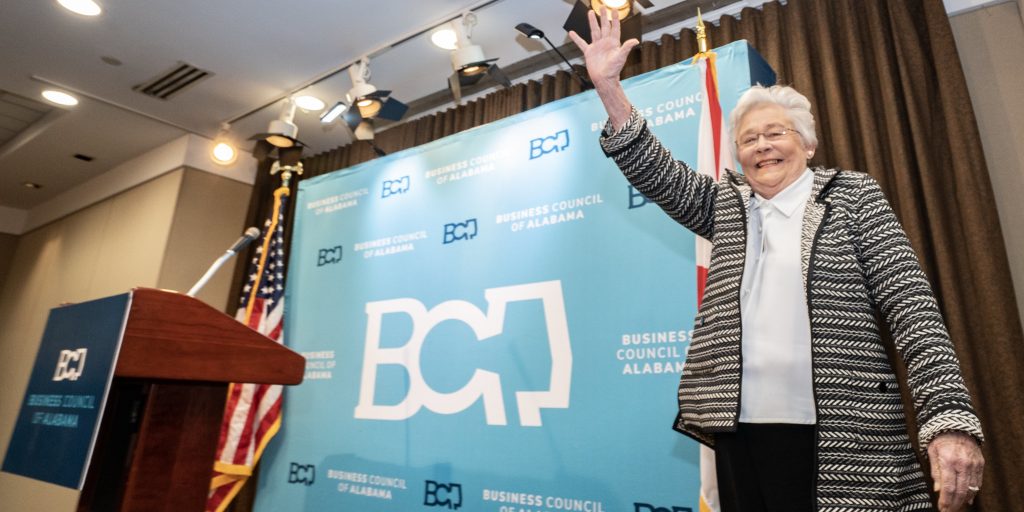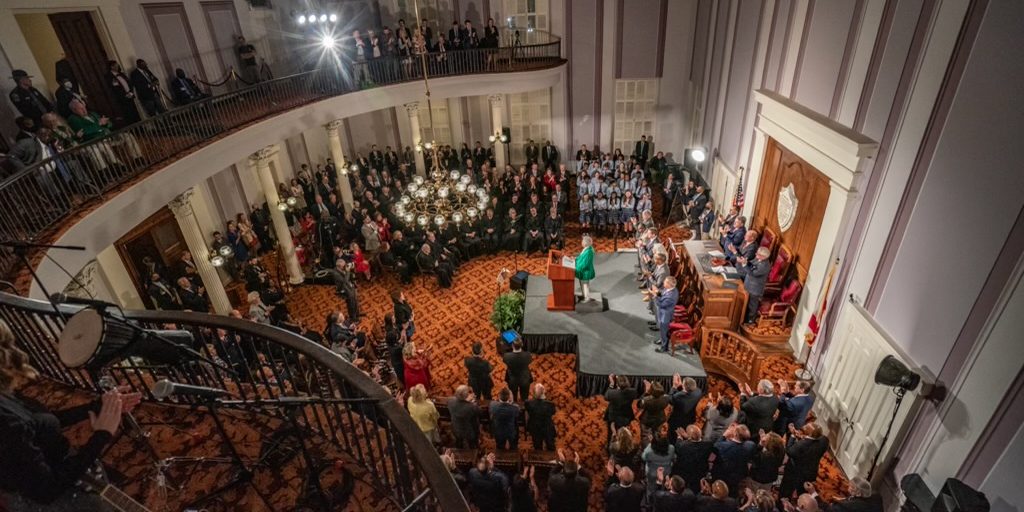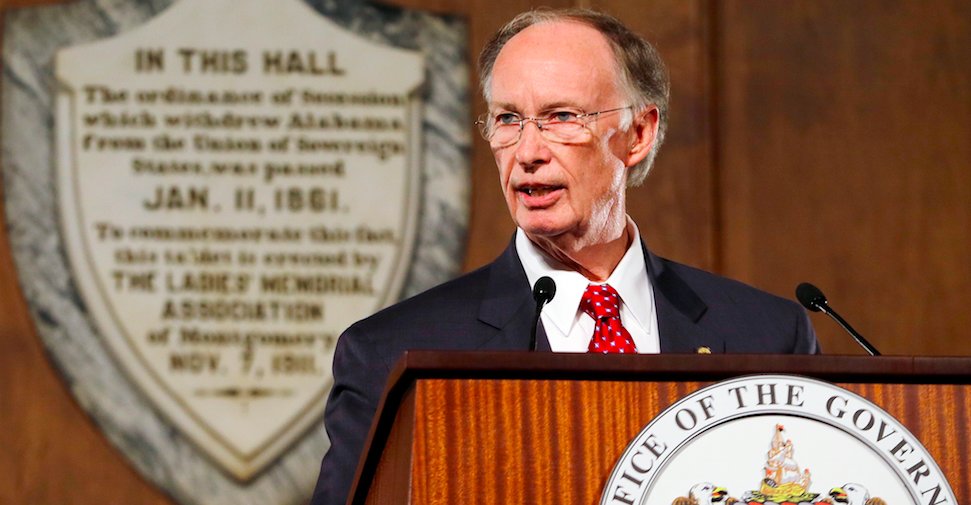
MONTGOMERY, Ala. — Gov. Robert Bentley on Tuesday delivered his annual State of the State address, promising to take “bold” steps to tackle a wide variety of challenges, from boosting economic development and reforming Alabama’s beleaguered prison system, to expanding Medicaid and the state’s nationally renowned Pre-K program.
Bentley urged the legislature to pass the Accelerate Alabama Economic Incentive Package, which he said will “make sure Alabama leads the nation in the recruitment of high-skilled, well-paying jobs.” He also touted the Alabama Workforce Council, a group of industry leaders from around the state he appointed to help “prepare Alabama’s workers for high-wage, high-demand careers” by “building and maintaining high quality partnerships between industry, education and workforce training institutions.”
Both the economic incentives package and the Workforce Council have garnered praise and support from members of the legislature on both sides of the aisle, particularly from Republicans who say they plan to continue focusing their efforts on boosting the state’s economy during the new legislative session, which began this week.
The governor also spoke with a sense of urgency about reforming the state’s dangerously overcrowded prison system and expressed a desire for “every child in the state of Alabama to have the opportunity to get a quality first class Pre-K education.”
But outside of those areas, which each seemed to be met with at least some level of support from the Republican-controlled legislature, there was not a lot for conservatives to applaud.
Former Democratic nominee for governor Parker Griffith attended the speech and told a reporter he had decided to come because he “heard the governor’s going to enact (his) platform.”
Considering two of Griffith’s main campaign talking points were expanding Medicaid and bringing more revenue into state government, he was largely correct.
A year removed from declaring in his 2014 State of the State address that he would “not bring hundreds of thousands into a (Medicaid) system that is broken and buckling,” Bentley struck a starkly different tone, saying instead that he would not allow the “flaws” of ObamaCare to keep the state from expanding taxpayer-funded healthcare for the “poorest and most vulnerable.” He also said that some hospitals are “dependent on Medicaid to survive,” further signaling that an expansion of the program may be imminent.
Then about two-thirds of the way through the speech, Bentley launched into the part everyone had been waiting for — his controversial plan to bring in $700 million more in government revenue annually, including $541 million in tax increases.
“Revenue must increase,” he intoned. “If we are to pay our debts, cover the shortfall and create a stream of growth revenue for our stagnant General Fund we must look to increase our revenue.”
Then, borrowing a phrase that was prevalent throughout President Obama’s 2012 presidential campaign, Gov. Bentley demanded companies pay “their fair share” to patch the budget shortfall.
“If Alabama families have to pay their fair share of taxes, so should large national and international corporations,” he said. “The budget I will send you will contain 8 separate tax increase proposals – which are fair and necessary – for a total of $541 million in estimated increased revenue.”
In addition to the increase in revenue for the General Fund, the governor also pushed for a revenue boost for the education budget, which in his plan would include “an estimated $250-300 million more for K-12 Education, the State’s two-year (college) system and higher education.”
The governor also touched on his proposal to un-earmark some of the money in the state’s budgets to give legislators more flexibility to move resources around and patch holes.
But in the end, he said cuts and reforms would not be enough and that tax increases were an absolute necessity.
“The problems we now face have been years, even decades in the making,” he concluded. “We cannot put off solving these problems anymore. We cannot cut our way out of this.”
Like this article? Follow me on Twitter and let me know what you think.
— Cliff Sims (@Cliff_Sims) December 3, 2014






